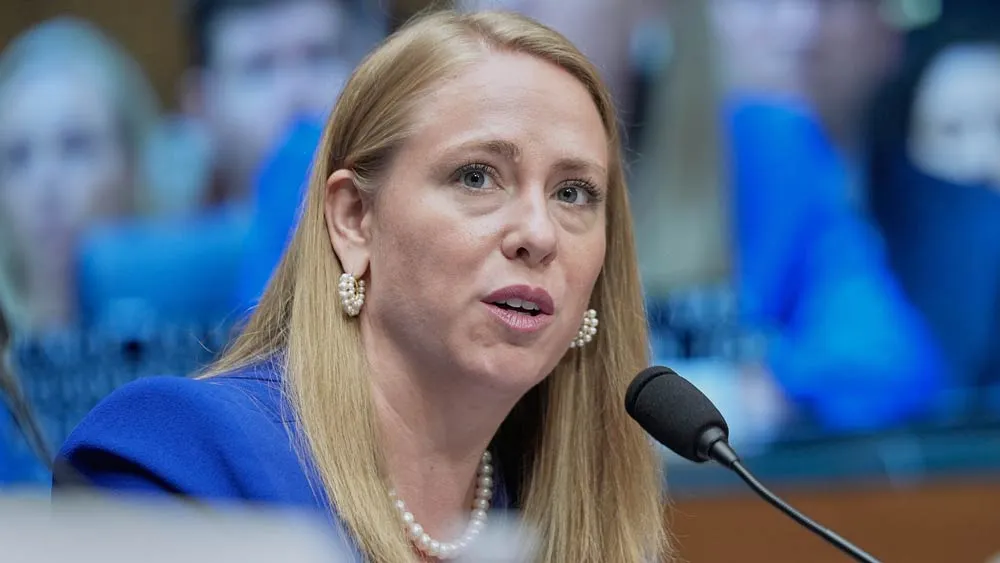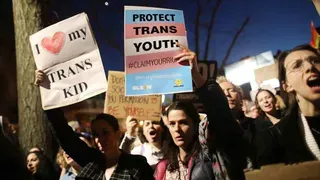October 2, 2014
Ex-Head of School Founded By Novelist Sparks Sues
Jason St. Amand READ TIME: 2 MIN.
The former headmaster of a private school founded by novelist Nicholas Sparks says the author and other school leaders forced him out when he tried to recruit black students and faculty and supported a bullied group of gay students, and on Thursday he sued for damages.
In the federal lawsuit, Saul Hillel Benjamin accuses Sparks of making racially and religiously dismissive remarks while Benjamin headed the college-prep K-12 school Sparks founded in New Bern, his hometown of 30,000 people about 100 miles east of Raleigh.
Sparks is a prolific author of love stories that are regularly turned into Hollywood movies - among them, "The Notebook," ''Dear John," and "The Last Song." The film adaptation of "The Best of Me" will be released in theaters this month - the ninth of Sparks' 17 novels to be made into a movie, according to his website.
Benjamin's lawsuit seeks lost income and punitive damages against Sparks, three other members of the board of The Epiphany School of Global Studies, and the Nicholas Sparks Foundation.
"As Mr. Benjamin sadly found out, the school harbors a veritable cauldron of bigotry toward individuals who are not traditionally Christian, and especially those who are non-white," the lawsuit said.
Theresa Sprain, an attorney representing Sparks in the case, denied the allegations in Benjamin's lawsuit.
"As a gay, Jewish man who has represented Nick for almost 20 years I find these allegations completely ludicrous and offensive," entertainment attorney Scott Schwimer said in a statement released by Sparks' publicist.
Benjamin was hired before the 2013-14 school year after professorial jobs in Morocco, Germany and Lebanon, according to his resume. He had four-year contracts with both the school and Sparks' foundation totaling $256,000 a year plus bonus and benefits, the lawsuit said.
The school's website says it does not discriminate against applicants based on gender, race, color, ethnicity, sexual orientation, or religion. But Benjamin said that when he tried to recruit black students and teachers, Sparks told him "diversity should not be measured by percentages of minority students enrolled or minority faculty employed," according to the lawsuit.
Benjamin said Sparks and conservative Christian members on the school's board questioned his Jewish background and Quaker beliefs. During one meeting, "Sparks insisted that Mr. Benjamin stop talking about Islam, Judaism, or any other non-Christian religion" at school functions, the lawsuit said. "That's not what our parents like to hear," the lawsuit quoted Sparks as saying.
Sparks also criticized Benjamin for attending an NAACP event, according to the lawsuit. Benjamin said he attended to introduce himself to black parents whose children might apply for admission to the school if they were made to feel welcome.
Sparks "indicated that Mr. Benjamin should utilize less public and visible means if he sought to meet with African-Americans," the lawsuit said.
School trustees pressed Benjamin to stop supporting students who had been bullied after forming a club where they could discuss their sexual identities, the lawsuit said. One said Benjamin was "promoting a homosexual culture and agenda."
The lawsuit also accused Sparks of locking Benjamin in a room at the school last November and shouting at the headmaster. Benjamin says that he feared for his safety and that the incident ended when he wrote a resignation letter.







